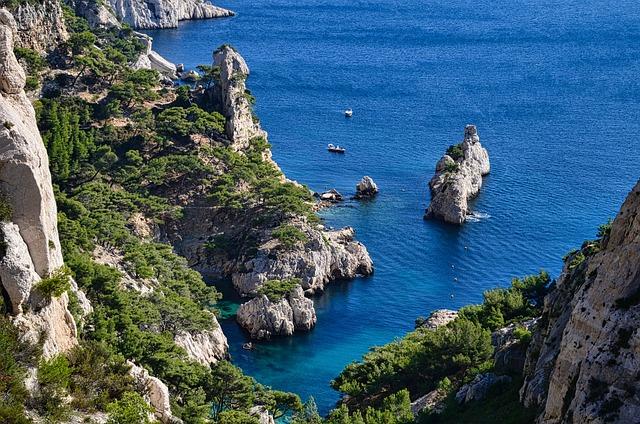In the heart of Paris, the echoes of global political maneuvering reverberate as General Oligui Nguema, the newly installed leader of Gabon, finds himself at the crossroads of friendship and diplomacy with France. Following a military coup that quickly altered Gabon’s political landscape, Nguema has garnered both interest and scrutiny from international observers, notably from his historic ally, France.This relationship, born out of a complex colonial past and shaped by contemporary geopolitical interests, raises pertinent questions about the implications of military leadership on governance and democratic processes in Africa. This article delves into the nuances of Nguema’s ascent to power, his connections in Paris, and the broader ramifications for Gabon’s future and French-African relations. As France navigates its legacy and influence on the continent, the friendship between a putschist and a former colonial power takes on new significance in an evolving geopolitical landscape.
Oligui Nguema’s Rise to Power and Its Impact on Franco-Gabonese Relations
The recent ascent of General Oligui Nguema to power has marked a significant shift in the political landscape of Gabon, igniting new discussions about Franco-Gabonese relations. Following the military coup that ousted President Ali Bongo Ondimba, General Nguema has positioned himself as both a nationalist leader and a key player in Franco-gabonese diplomacy. His military credentials and promises of reform have garnered attention in Paris, where the French government is cautiously monitoring the developments, concerned about maintaining its influence in a region where competition is growing from other global powers.
Experts suggest that Nguema’s connections with France might be leveraged to stabilize Gabon’s economy and strengthen bilateral ties. Key factors influencing this relationship include:
- Economic Interests: France has significant investments in Gabon’s natural resources, especially oil and timber.
- Security Cooperation: Historical partnerships in military training and intelligence-sharing could be revitalized under Nguema’s leadership.
- European union Involvement: The EU’s approach will also be vital as it reassesses its footprint in Gabon considering Nguema’s new regime.
| Key Events | Date | Impact |
|---|---|---|
| Military coup against Bongo | August 2023 | End of bongo’s presidency; rise of Nguema |
| initial talks with French officials | September 2023 | Seeking stable relations post-coup |
| International reactions | Ongoing | Mixed responses from global powers |
The Role of France in the Political Landscape of Gabon
The recent political shifts in gabon, marked by General Oligui Nguema’s rise to power following a coup, have elicited responses from France that underscore its ongoing influence in the region. Historically,france has maintained strong ties with its former colonies in Africa,and Gabon is no exception. The relationship is characterized by a blend of military cooperation,economic interests,and cultural exchanges. French investments in gabon, particularly in the oil and timber sectors, reflect a commitment to nurturing economic partnerships while ensuring political stability in a nation that has frequently enough been at the crossroads of unrest.
Beyond economic ties, France’s role also involves strategic diplomacy. The current situation presents several implications for Gabon’s governance and regional relations. France’s response to Nguema’s coup can be viewed through various lenses:
- Support for stability through diplomatic channels
- Interventions in discussions pertaining to democratic governance
- Security alliances, particularly with the Gabonese military
To illustrate this dynamic effectively, the following table summarizes key engagements between France and Gabon over the past two decades:
| Year | Event | Impact |
|---|---|---|
| 2001 | Military training programs initiated | Enhanced capability of Gabonese forces |
| 2010 | Strategic oil partnership agreements | Increase in French investments |
| 2023 | Diplomatic support during coup | Negotiation platform for stability |
Analyzing the Consequences of Military Coups in West Africa
The recent coup d’état in Gabon led by General Oligui nguema has reignited the debate surrounding the implications of military takeovers in West Africa. These events often disturb the delicate balance of governance and security, leading to significant political and social repercussions. In Gabon, Nguema’s ascent to power may signal a shift in the regional dynamics as the military increasingly positions itself as a key player in political spheres. The consequences of such actions can include:
- Political Instability: Military coups typically lead to prolonged periods of uncertainty, wich can hinder democratic processes.
- Human Rights Concerns: coups frequently enough result in crackdowns on dissent and civil liberties, as governments might resort to authoritarian measures to maintain control.
- Economic Disruption: The immediate aftermath of a coup can destabilize economies, deter foreign investment, and disrupt trade.
In Gabon specifically, the repercussions of General Nguema’s leadership might echo throughout the region, particularly as West African nations face internal pressures and challenges. Historical analyses suggest that post-coup governments can struggle to gain legitimacy, leading to entrenched divisions within society. The relationship between Nguema and external powers, notably France, raises questions about neo-colonial influences in the region. A closer examination of these ties reveals a complex web of interests:
| Factor | Implication |
|---|---|
| Foreign Support | Potential for political leverage |
| Military aid | Increased dependency on external powers |
| Energy Resources | Economic motivations influencing foreign policies |
France’s Strategic Interests in Supporting Oligui nguema
In the complex geopolitical landscape of Central Africa, France’s support for General Oligui Nguema symbolizes a continuation of its historical ties with former colonies. This backing aligns with several strategic interests that Paris holds regarding the region’s stability and resource management. Among these interests are:
- Resource Access: Gabon is rich in natural resources such as oil,manganese,and timber,which are vital for French industries.
- Regional Influence: Maintaining dominance in Africa allows France to counteract growing influences from other global powers, particularly China and Russia.
- Security Concerns: Stabilizing Gabon under Nguema can help mitigate potential threats from extremist groups operating in neighboring countries.
Moreover,a recalibration of alliances can also extend France’s strategic autonomy in the region.By reinforcing relationships with military leaders, France aims to ensure that its interests are safeguarded through more direct means.This approach is reflective of France’s broader foreign policy, which often prioritizes diplomatic ties over democratic values, thereby enabling a more stable yet contentious political environment in Gabon. Key considerations for this alignment include:
| Consideration | Implication |
|---|---|
| Military Collaboration | Ensures influence and rapid response capabilities in the region. |
| Economic Partnerships | Strengthens trade ties and secures energy resources. |
| Cultural Diplomacy | Maintains France’s soft power through education and cultural exchanges. |
recommendations for a Balanced Approach to Gabonese Governance
To foster effective governance in Gabon, it is indeed crucial for leaders to prioritize openness, accountability, and inclusiveness. This can be achieved by implementing mechanisms that encourage civic participation and allow citizens to voice their opinions and grievances. Establishing an autonomous judiciary and promoting anti-corruption measures will strengthen the rule of law and enhance public trust in government institutions.
Additionally, Gabonese governance should strive for socioeconomic development that benefits all citizens, rather than a select few. Key recommendations include:
- Investment in Education: Prioritize quality education to empower the next generation.
- healthcare Access: Increase funding for public health initiatives to improve overall wellbeing.
- Economic Diversification: Reduce dependence on oil by promoting sectors like tourism and agriculture.
- Environmental Sustainability: Develop policies that protect Gabon’s rich biodiversity while supporting enduring economic growth.
| Strategy | Expected outcome |
|---|---|
| Strengthening Rule of Law | Enhanced public trust in governance |
| Encouraging Civic Engagement | Increased accountability and transparency |
| Promoting Economic Diversification | Reduced vulnerability to oil market fluctuations |
| Ensuring Sustainable Development | Long-term environmental and economic health |
The Future of Democracy and Stability in Gabon Under Military Leadership
The recent military takeover in Gabon has ignited discussions about the future landscape of democracy and stability in the region. Following the ousting of President Ali Bongo,General Oligui Nguema’s ascendance raises pressing questions regarding the governance model that will prevail. While the military’s initial promise of restoration and reform appeals to certain segments of the population, skepticism looms regarding long-term sustainability. The reliance on military leadership typically leads to a range of challenges, including the potential erosion of civil liberties, increased repression of dissent, and the risk of further political instability.
In light of these recent developments, it is indeed essential to consider the influence of external actors, particularly france, which has historically maintained strong ties with Gabon’s political elite.This relationship may shape both the military regime’s policies and its approach to democratic governance. Key factors to observe include:
- International Recognition: Will France and other nations endorse the new leadership, or will they demand a return to constitutional order?
- Economic Support: How will international financial aid and investment respond to this shift in power?
- Public Sentiment: To what extent will the Gabonese population accept military rule versus reinstating a civilian government?
| Key Issues | Potential Outcomes |
|---|---|
| Military Governance | Short-term stability but risky for democratic processes |
| International Relations | Potential support from France, conditional on reforms |
| Internal Resistance | Risk of unrest from pro-democracy groups |
In Summary
the unfolding alliance between General Oligui Nguema of Gabon and French authorities raises critical questions about the dynamics of post-colonial relationships and the implications for governance in both countries. As Nguema, who seized power in a recent coup, navigates his newfound role on the international stage, his connections to Paris highlight the complexities of foreign diplomacy within Africa. Observers will be watching closely to see how this partnership evolves, particularly in terms of its impact on Gabon’s political landscape and the broader implications for stability in the region.The interplay between France and its former colonies remains a vital area of observation, underscoring the need for a nuanced understanding of power, influence, and the ever-evolving geopolitical fabric of Africa. As the situation develops, the true nature of this “putschist friendship” will become clearer, prompting further discussions about the responsibilities and challenges of both French and Gabonese leadership in an increasingly interconnected world.

